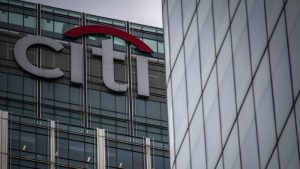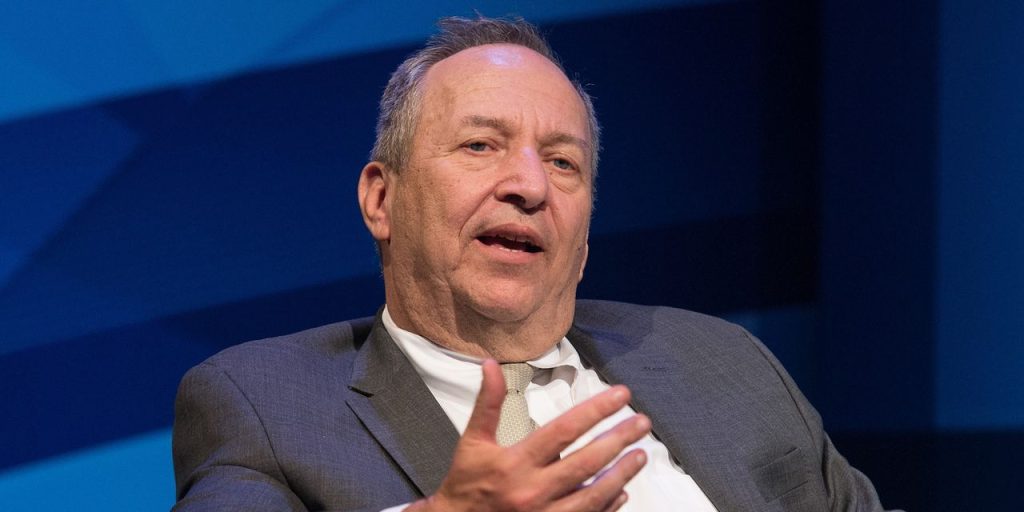Former U.S. Treasury Secretary Larry Summers continues to criticize President Joe Biden’s economic policies, even as his fellow Democrat has overseen a significant decline in the rate of inflation.
Summers took particular aim at two pillars of “Bidenomics” — the shunning of free-trade agreements that seek to lower trade barriers at home and abroad, and a turn to industrial policies that seek to foster high-tech domestic manufacturing in an effort to shore up national security and increase well-paying jobs.
Don’t miss: Morgan Stanley credits ‘Bidenomics’ in lifting its U.S. economic-growth outlook
See also: Consumer confidence climbs to 2-year high as worry over inflation and recession ease
Summers said during a Tuesday event staged by the Peterson Institute for International Economics that he largely supported the Inflation Reduction Act, which included large subsidies for green-energy producers, because it is “overwhelmingly important that the United States have a strong, aggressive climate strategy” and the CHIPS Act because there’s a national-security argument for producing semiconductors within U.S. borders.
“I think one should distinguish what the administration has mostly done, a large part of which I agree with, from the administration doctrine, which I think is increasingly dangerous,” he said.
See: White House says it’s focused on being at front end of supply chain for chips, won’t comment on report of possible new ban on exporting AI chips to China
Summers argued that the Biden administration is taking its eye off the ball when it comes to inflation, which he sees as a major economic problem facing the U.S., noting that real wages for the average American, which account for the impact of inflation, are below what trends would have predicted prior to the COVID-19 crisis.
“It’s right to be concerned about the environment, and it’s right to be concerned about [supply-chain] resilience. It’s wrong to suppose that manufacturing-based economic nationalism is a route to higher incomes or better standards of living for the middle class,” Summers said.
Summers, who served in economic advisory roles in the Clinton and Obama administrations, lamented President Biden’s “non-attitude toward trade,” which he sees as working to de-emphasize seeking new trade agreements with economic partners.
He argued that free-trade agreements over the past 50 years have lowered costs for U.S. consumers and helped create good-paying jobs at home, despite successful political efforts to tarnish these treaties as responsible for the loss of manufacturing jobs.
He lamented the Biden administration’s decision to maintain tariffs on imports of some Chinese goods that were put in place during Donald Trump’s presidency as a missed opportunity for reducing inflation.
He pointed to the fact that the number of workers in U.S. steel manufacturing are just 1% of the total number of workers in industries that use steel in their manufacturing processes. “All of those industries suffer when steel prices are increased as a consequence of protection,” Summers said.
He also took aim at the Biden administration’s efforts to ramp up enforcement of antitrust laws as potentially “inflationary.” He said that new merger guidelines issued last week “discard as the animating principle of antitrust, the idea of lower consumer costs and greater consumer welfare.”
Despite these policies, inflation has fallen to 3% in June from a 40-year high of 9.1% one year ago, as measures by the Bureau of Labor Statistics’ consumer-price index, though some economists fear this reduction is due in part to unsustainable decreases in energy prices.
Read on:
Inflation in the U.S. has cooled off significantly. Great. Here’s what’s not so great.
U.S. economy is heading to a soft landing and its stocks may be a better bet than those in China and Europe, says Goldman Sachs
Read the full article here














